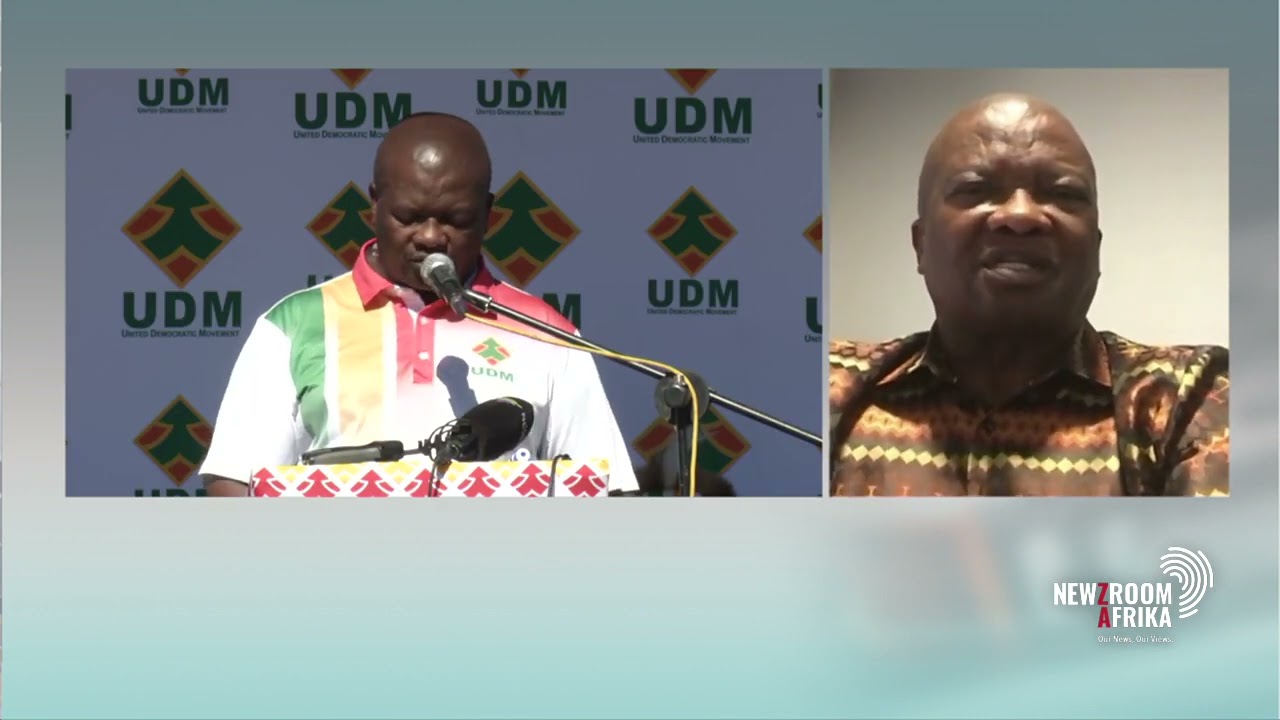Udm Won't Partake In Da's 'Moonshot Pact'
Unleash Your Creative Genius with MuseMind: Your AI-Powered Content Creation Copilot. Try now! 🚀
In the ever-evolving landscape of South African politics, one of the most intriguing dynamics at play is the concept of cooperation among opposition parties. The Democratic Alliance (DA) has been making waves with its proposal for various opposition parties and civil society groups to unite in a collective effort to prevent the African National Congress (ANC) from regaining power. The twist? They also aim to thwart any potential alliance between the ANC and the Economic Freedom Fighters (EFF). It's a political dance with high stakes and unexpected twists.
Opposition Unites, but Not Everyone's Dancing
Initially, when this idea first sprouted, it faced resistance from several opposition parties. They appeared skeptical about the feasibility and necessity of such collaboration. However, the DA, in its persistent pursuit, claims to have garnered the support of five parties willing to join forces. But here's where the plot thickens: the United Democratic Movement (UDM), led by General Bantu Holomisa, is staunchly rejecting this idea.
So, why is the UDM rejecting the proposal from the DA, and what's the bone of contention? To dive deeper into this political whirlpool, let's hear from General Holomisa himself.
The UDM's Perspective
General Holomisa emphasizes that the UDM is not against the idea of replacing the ANC government. According to him, the ANC has not only failed in delivering services but also seems to have strayed from its original mission of looking after all South Africans. So, what's the issue with the DA's proposal?
The crux of the matter, as General Holomisa points out, is the way in which this initiative has been introduced. He highlights that discussions on this matter have been ongoing within the opposition, with the last sitting held on March 15th. The focus during these discussions was on requesting the Independent Electoral Commission (IEC) to brief opposition leaders on the state of readiness for the upcoming elections. The intention was to ensure that everyone was on the same page, given the potential for a coalition government.
Surprisingly, General Holomisa and others were caught off guard when they heard the DA's John Steen Hazen announce the initiative in a rather dramatic fashion, even mentioning space travel. This unconventional approach clashed with the more pragmatic tone that the opposition parties had been following.
The Clash of Attitudes
So, is it primarily about the attitude and approach? General Holomisa believes that John Steen Hazen's behavior and attitude towards other opposition parties have been the main sources of contention. While the UDM doesn't intend to stand in the way of the DA's "moon mission," they believe in a more cooperative and inclusive approach.
The UDM leader argues that their party is not financially dependent on any external entities and doesn't need to appease donors. They've operated independently for 24 years without relying on funds from major corporations. Therefore, they are not swayed by the influence of money, and they don't see it as a determinant in political decision-making.
Leading the Charge
One question that arises is who should lead this initiative if not the DA, which happens to be the largest opposition party. General Holomisa steers the conversation back to the principle of the matter. The UDM envisions a collaborative effort that mirrors the diverse composition of the ANC. If an alternative structure is to be established, it should encompass various ideological, religious, and social groups to create a robust and inclusive platform.
The General's rejection of the DA's proposal underscores the importance of returning to the core agenda of improving the lives of all South Africans. It's not about declaring who should lead the opposition but about crafting a vehicle that truly represents the diversity of the nation.
A Long and Winding Road
In the end, General Holomisa wisely points out that it's too early to determine the future of South African politics. The upcoming elections will undoubtedly reveal voter sentiments, and potential alliances will take shape based on the outcomes. As political forces continue to shift and evolve, it's essential to remain open to collaboration, keeping the focus on the greater good and the well-being of all South Africans.
The dance of opposition politics in South Africa is a complex and ever-changing performance, and with each step, the future of the nation hangs in the balance. The key is to ensure that, regardless of the choreography, the ultimate goal is a more prosperous and equitable South Africa.

Related Recaps
- Hailstorm Rain Forecast In Telangana For Next Four Days | V6 News
- 📊 Company credit ratings: What they mean and how they work 🤔 #shorts
- Toda tu vida fuiste un viejo aprovechado, Con esta VENGANZA te llegó el KARMA - Historias de Reddit
- The world gets worthy champion in Ding Liren - Chess World Championship final analysis ft Rakesh Rao
- Mother speaks out 40 years after her missing daughter was identified as victim of serial killer Gary